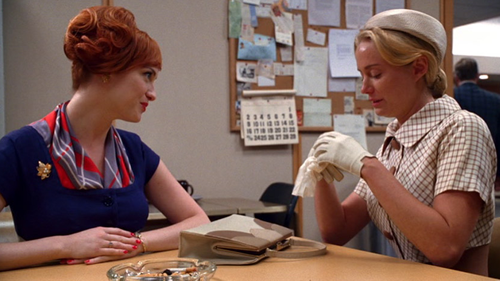Skins: British vs. American
Skins is a British TV show finishing it’s fourth season in the UK. It’s fictional, set in Bristol, England, it focuses on teenagers, and it’s very raw and realistic, covering drug and alcohol abuse and sexuality as topics. It’s raunchy and hugely popular in Britain. I’ve been watching the British version streaming through Netflix, and I like it a lot. It’s a bit shocking in that there is a lot of stuff one would never see on American television, but it seems really real; like these are real teenagers and how they really act, and despite their adult behavior, there’s a sweetness and longing to the kids that betrays how innocent and hopefully they really are underneath their facade of cynicism.
So of course they brought the show to America. And fucked it up. Because that’s what we do.
The American version is almost a shot for shot recreation of the first season of the British original, but with American teens, so of course they look just a bit slicker and cuter. That shot-by-shot recreation is an important point, though — because when they deviate from the original, it means that there’s a calculated reason for it. And the calculation is what’s disturbing.
The story centers around a teenage school kid named Tony and the friends that revolve around him: his girlfriend Michelle, buddy Stan (Sid in the original), and several other pals. Tony is an attractive jerkwad who manipulates his friends, usually for selfish reasons. But he has charisma and charm and they hang around him despite his jerky behavior, because he can talk them out of being mad. He regularly cheats on his girlfriend Michelle, and she knows it, but she overlooks it. Usually. In the British version of the show, this is what brings their relationship to a halt halfway through the first season, and is the source of conflict through the rest of it — Tony decides to fool around with their gay friend Maxxie. It’s not because Maxxie’s a guy that Michelle gets upset, but rather that Tony does it openly where everyone knows about it. She’s been overlooking his cheating for a long time, but now that it’s no longer a secret, she can’t look the other way and she dumps him. The storyline is daring because Tony is so casually fluid about his sexuality; he’s clearly straight but isn’t freaked out about fooling around with another boy, and he’s so vain that he enjoys the attention. He only ends up apologizing for his behavior because he loses Michelle, but for that he wouldn’t care or have any moral problems with it.
And that brings us to the American version, and the homophobia problem with it — in this version, the gay boy Maxxie has been changed to a lesbian girl named Tea. She’s a cheerleader and is open about her sexuality to her friends. She casually sleeps with girls because she enjoys it, but she’s bored with most of the girls she meets and can’t find one that “matches” her level of interest in the world around her or her curiosity. She agrees to go out on a blind date arranged by her dad, and it turns out to be with Tony – whom she fools around with. He makes a case that he is the one that “matches” her. And despite her declarations that she’s gay, she appears to be considering him as a potential interest, at least for the first few episodes in.
Given that every single other element of the show is the same – dialog, jokes, shot for shot recreations of the original – this change is really blatant. Clearly, they were too freaked out by the gay male storyline, or the idea that a straight boy could be fluid about his sexuality, to leave the original story. But in making the gay character a gay girl, they made her sexuality fluid, which is already a stereotype about lesbians that we have to fight constantly, because the idea of a lesbian being “changed” or “corrected” by sleeping with a guy is so pervasive that a common hate crime directed at gay women is “corrective” rape. Having been a victim myself of that particular hate crime, these kinds of perpetuations of the myth that gay women aren’t really gay are painful to watch. It’s the reason I hated The Kids Are All Right, among other things. It’s just not true, and it’s annoying when guys have that false notion in their heads validated onscreen.
I’m going to continue to watch the American version of Skins, but if they end up putting Tony and Tea together, I’m going to be hard pressed not to throw my remote at the screen in disgust.
UPDATE: Of course they went there. Ugh.

